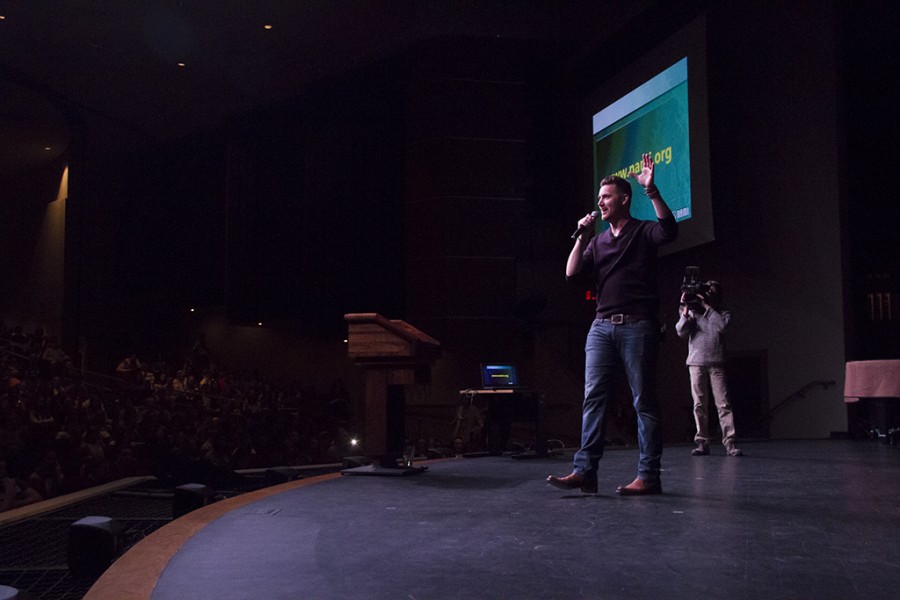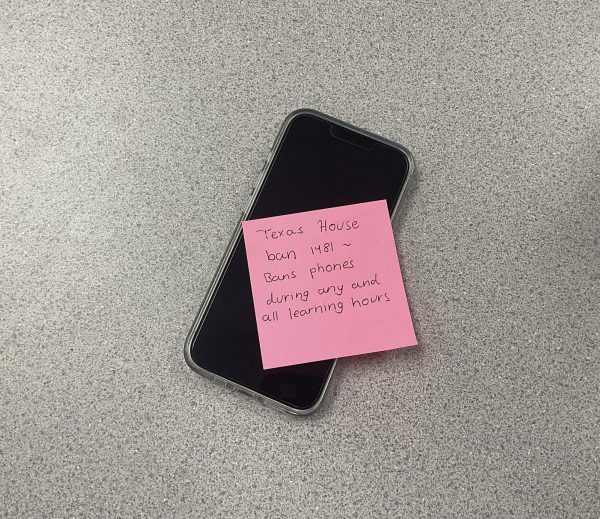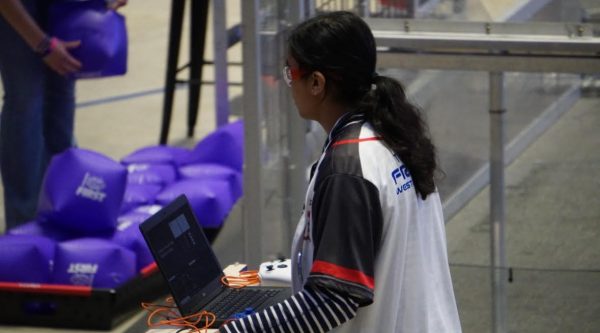Speakers discuss mental health at school assembly
One in every five people living in the U.S. are suffering with a mental illness. Every day, about 105 Americans die by suicide, making it the 10th leading cause of death in the U.S. and the second leading cause for people aged 15 to 24.
At the assembly on Feb. 11, speakers Karen Ranus and Jay Styles stressed these chilling statistics by recounting their own experiences regarding mental health. Ranus and Styles are representatives of the National Alliance on Mental Illness, an organization dedicated to aiding those who are affected by or suffering from mental illness.
“The primary goals of [NAMI] are to provide education,” Ranus said. “We do all kinds of free classes, support groups and community education. We try to invite people to get the help that they need as soon as possible, and they often end up coming in a lot earlier than they would otherwise.”
Ranus got involved with NAMI about five years ago when she nearly lost her own daughter to suicide.
“She had been diagnosed with major depression, and our family was really isolated,” Ranus said. “I started looking for resources, and about six months after her diagnosis, I stumbled across NAMI. I took one of their free classes and learned all about mental health conditions, how to be a good support system for her and how to take good care of myself in the midst of all that.”
NAMI soon won Ranus over with its mission to provide free support to anyone who needs it. When an opportunity came along to become an active part of NAMI, she jumped on board.
“The biggest thing that I’ve done is share my own story, which is really my daughter’s story,” Ranus said. “Before she moved to Portland, Oregon last summer, we used to do this presentation together. The very first time that we told the story was a really powerful time for us. I remember looking at her and saying, ‘Are you really ready for this?’ and she said, ‘Yes, absolutely, because if we can save just one life, then it’s worth it.’ A lot of what we’re about is doing the storytelling because that’s one of the ways we can really educate people. It’s a really powerful way to get a message across.”
At the assembly, Ranus seemed composed and confident when relaying her experiences to the crowd. However, it hasn’t always been easy for her to relive some of those painful memories.
“The very first few times that I told my story, I have to be honest — I probably cried,” Ranus said. “It was a very emotional experience, but one of the great things about telling a story is every time you tell it, you let loose more and more of the shame and embarrassment around it, especially when you start to see how it impacts people. Once I started telling the story and then hearing people say, ‘Hey you know what? Me too,’ I started to realize how many people mental health really impacts. You recognize the power of storytelling, and it makes it a whole lot easier to tell the story.”
While Ranus found NAMI through her own research, Jay Styles, a well-known DJ on 94.7 MIX FM, was approached by the organization after giving a speech at the state capital about mental health. Styles also recognizes the importance of storytelling, despite the initial difficulty.
“Every time you tell a story, you get more and more comfortable,” Styles said. “For me, I think of the pain I’ve already endured — the crying and the tears. So, when I share my story, I take the angle of, ‘OK, this may be something someone else is going through.’ I want people to think, ‘I don’t feel alone anymore. Look at where he is now. I know I can get to that point.’”
One of NAMI’s main objectives is to correct the misconceptions that people have about mental health. Due to his own experiences, Styles focuses his attention on dispelling the myth that mental illnesses are all the same.
“There is no one ‘anxiety;’ there is no one ‘depression,’” he said. “You can be diagnosed with the same thing — my diagnosis is borderline personality disorder. But if someone else has the same thing, they may be going through some different things, and we’ll have some similarities. It’s important to know that there are no two cases that are alike. Also, you never know what other people are going through. They could look like me — I’m a good-looking guy; I have my dream job, and yet I battle every day to stay afloat. So, you never know. There’s no one face to this. You can say, ‘That boy’s the popular kid — he’s the star quarterback,’ and yet a month later he commits suicide.”
Ranus reiterates that a person’s mental health cannot be determined by their outward appearance.
“We all have this image of what mental illness should look like, and it doesn’t look like successful people who have it all together,” Ranus said. “My daughter used to say, ‘I look at other people and and everyone’s doing OK except for me,’ and I would say, ‘Darling, they would look at you and say that you’ve got it all together.’ I think it’s important to realize that the face of mental illness looks like all of us. It’s really powerful to know that we’re all vulnerable, and that it’s common, and that people can get treatment and recover.”
Ranus advocates that the most effective way to recover from a mental illness is to be vocal about it. Instead of holding it all inside, she believes that issues should be talked about and discussed — nobody should be embarrassed or ashamed to seek help.
“If you’re someone that’s living with a mental health condition and you know that something’s going on, reach out,” Ranus said. “Talk to someone. And, if you’re a friend of someone [who’s struggling], talk to them. My daughter talks all the time about a group of five girlfriends that she had all throughout high school, and after her crisis and recovery, they got together and told her that they used to talk about her to each other, but they never had the courage to talk to my daughter. My daughter always says how if they had come to her, she would have at least known that they cared and that they had realized that she was hurting and needed help. But they were too embarrassed to talk about it.”
While the issue of mental health will never be fully eradicated, Ranus is optimistic that people are becoming more aware of the importance of the issue and more willing to discuss it.
“We’re seeing a big change in the community,” Ranus said. “I think that’s what’s really exciting about being here at Westlake. I think Westlake has taken a really proactive approach, and they stand as a leader in saying that this is an issue that matters and should be prioritized. It’s exciting and inspiring to see that kind of change going on in our community.”











toods dodges dots • Mar 1, 2016 at 12:25 pm
same